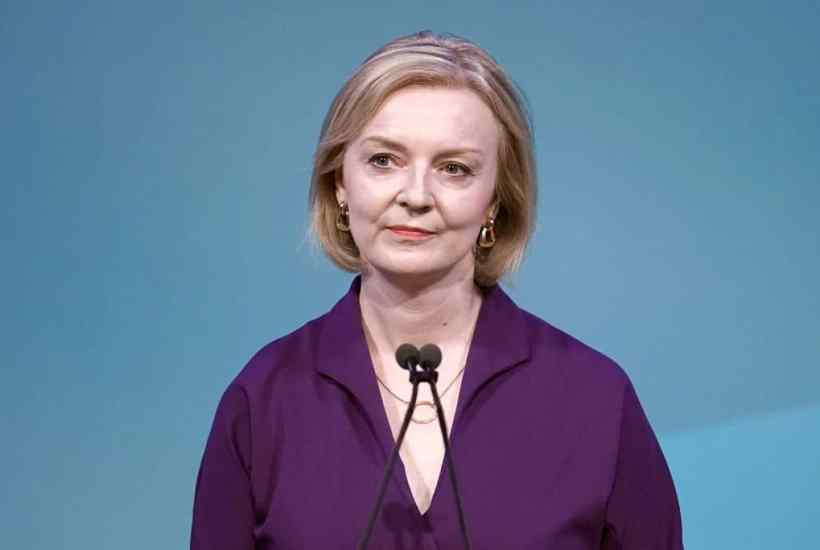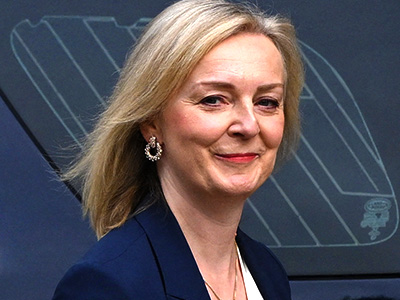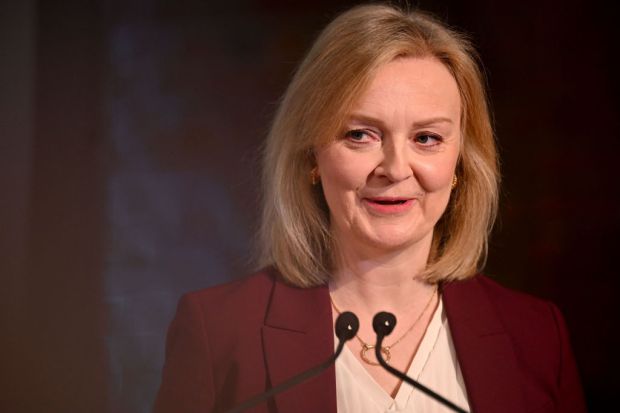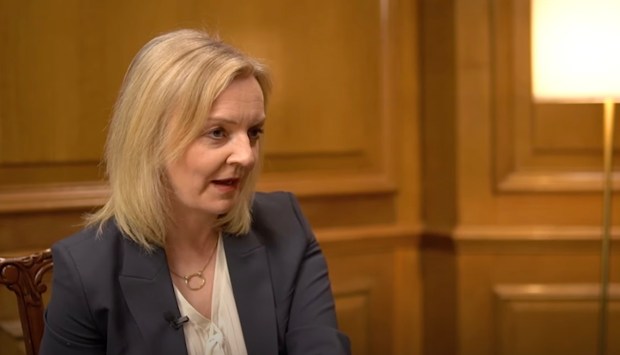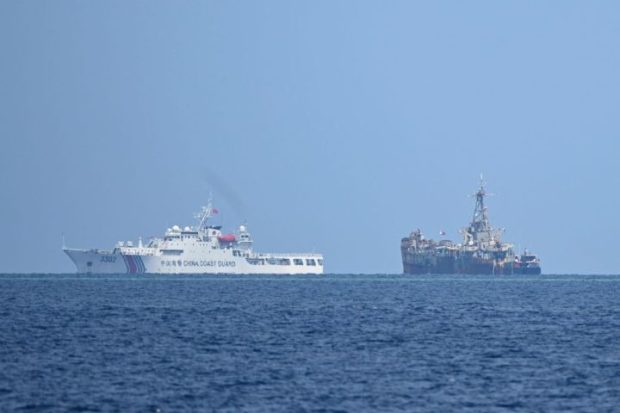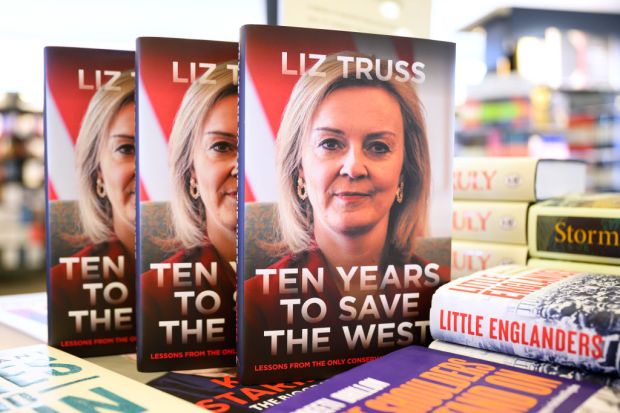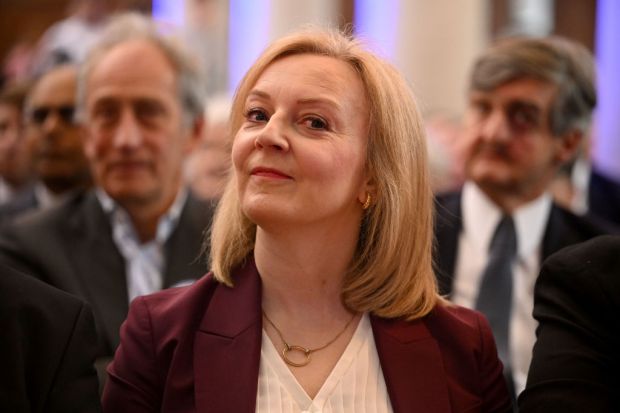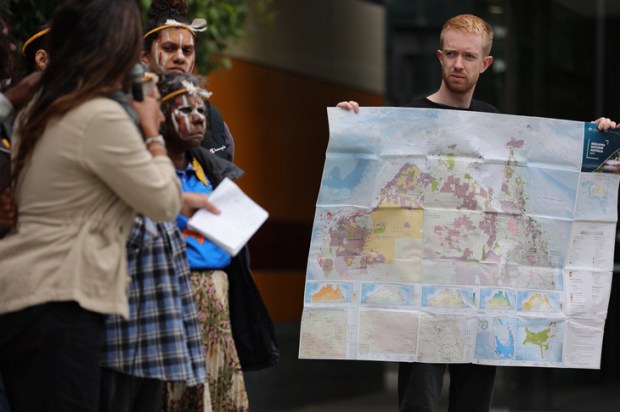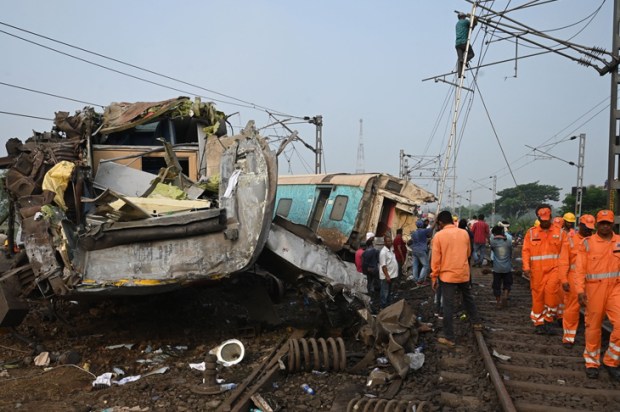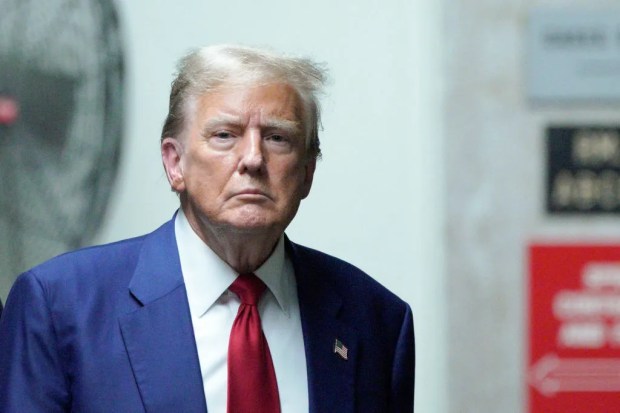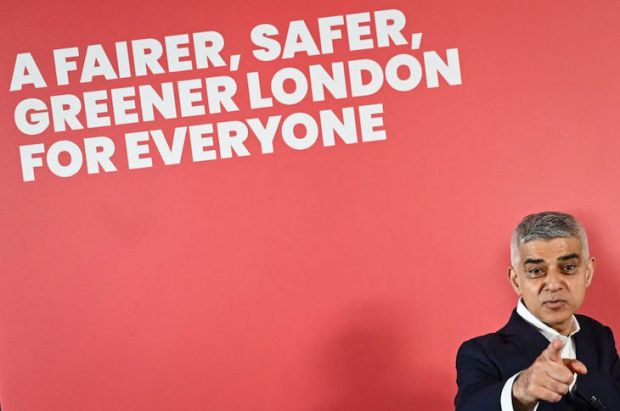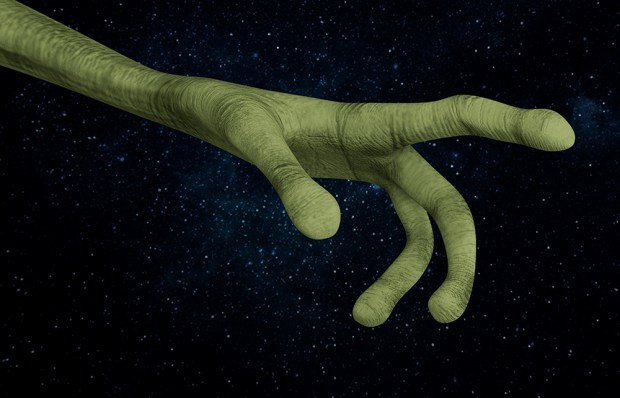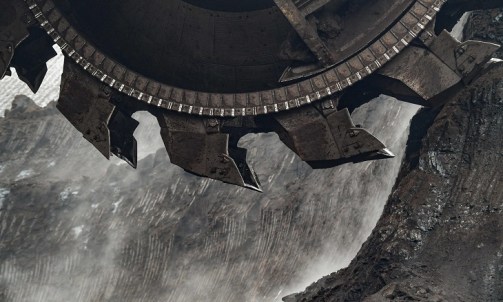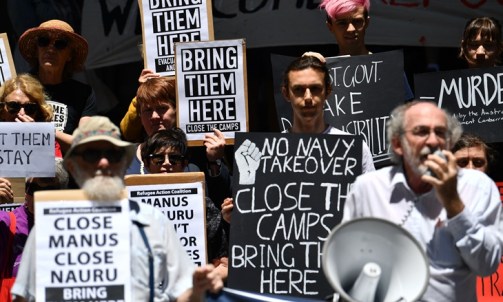In her speech to the Conservative party conference, Liz Truss rightly pointed out that we did not stand up to Russia early enough. ‘We became too dependent on authoritarian regimes for cheap goods and energy,’ she said. We can safely assume that those ‘other’ regimes include China, though curiously given how prominently the China threat figured in her leadership campaign, her speech contained no direct reference to Beijing.
To be fair, Truss had a lot on her mind, and it is early days in her administration. But there are a number of reasons to believe she is wobbling on her commitment to a more robust and coherent China policy. It’s time to ask whether her tough talk will soon be swept aside by the crisis facing her and the economy.
This week, a decision on the sale of Newport Wafer Fab, Britain’s largest chip-making facility, to a Chinese-owned company was delayed for a third time. The government launched a national security assessment of the sale in May in what was seen as a key test of new legislation on security and investment. It had seemed like a pretty cut and dried case. Also delayed was a decision on removing state-owned China General Nuclear from the UK’s nuclear energy programme, with the government struggling to find a way of filling the funding gap this could create.
For his part, foreign secretary James Cleverly is sounding a good deal more conciliatory towards Beijing than his predecessor (one Liz Truss). In his first meeting with his Chinese counterpart Wang Yi, during the UN general assembly last month, he reportedly took Yi to task over tensions in the Taiwan strait, but ‘set out the importance of constructive engagement with China,’ according to the Foreign Office take.
In a visit to the Asia-Pacific region, he had a similar message in interviews with regional media. China should play by the international rules, he said, but ‘we will always want to see a successful economic relationship with China’ (Nikkei), and ‘what I would ultimately like to see is a healthy partnership’ (Channel News Asia).
Cleverly gave a keynote speech last month at a summit in Singapore, which was also attended by Labour party veteran Peter Mandelson, who heads a policy advisory firm. It is not known if the two men met, but Mandelson, who has an astute political antenna, called for the UK to adopt a ‘more practical and realistic approach’ to China. In an interview on the sidelines of the summit, he reportedly criticised the anti-China messaging that has ‘festered’ in Britain and said that China would inevitably grow in importance as an economic partner.
During her leadership campaign, Truss was reportedly intending to declare China a national security threat on par with Russia. More recently she has asked officials to look again at Britain’s integrated defence review, which in March 2021 designated China as ‘the biggest state-based threat to the UK’s economic security’ and a ‘systemic competitor’. But it also described Beijing as an ‘important partner in tackling global challenges like pandemic preparedness, diversity and climate change’. It emphasised the importance of economic ties, saying: ‘We will continue to pursue a positive economic relationship, including deeper trade links and more Chinese investment.’
The review neatly encapsulated Britain’s muddled China policy – a belief that confronting China on security and human rights can be neatly separated from issues of trade, investment and market access, where engagement should continue. Beijing does not make the distinction. It uses economics as a tool of coercion. The Chinese communist party frequently views investment as serving its strategic interests, rather than in commercial terms. Dependence on China is potentially far more dangerous than anything we have seen with Russia.
Truss seemed to grasp this during her time in the foreign office and during the Tory leadership campaign. Now she appears to be defaulting to the muddled thinking of her predecessor Boris Johnson. She told the Tory conference that her priorities are ‘growth, growth, growth’. But the danger is that a single-minded ‘growth agenda’ leaves little room for much-needed caution or discernment on Chinese investment – and that will be even more the case if the economic situation worsens. This is not lost on the Chinese communist party, whose Global Times newspaper gleefully pointed out that ‘hyping ideological conflicts will only cost the UK opportunities to weather the coming economic storm’.
The government can rightly say it is putting new national security laws and other systems in place to examine business investment and academic collaboration in ‘strategic’ areas, as well as for countering Chinese influence operations and cyber spying. But what constitutes ‘strategic’ is open to wide interpretation. Such measures are also largely untested and depend on the political will to enforce them. In the meantime, communist party-related companies and entities, such as surveillance camera-maker Hikvision and tech giant Huawei, are deeply embedded in some of the most sensitive corners of the British economy and academia.
Perhaps the most frightening photograph to emerge from Tory conference was shared on Instagram by Stanley Johnson, Boris’s father. It shows him and Cleverly with their arms around each other, smiling broadly for the camera. ‘Welcomed in Birmingham today by the foreign secretary James Cleverly’, says the caption.
Stanley has a bit of time on his hands since a Covid lockdown in the Chinese city of Chengdu forced him to return to Britain and put on hold a Beijing-backed documentary series the 81-year-old was making with his son Max, following in the footsteps of the explorer Marco Polo. Chinese state television were set to follow in Stanley’s footsteps, filming his progress. The TV series will take in Xinjiang, scene of chilling human rights abuses against the Uyghur people. Johnson senior has shrugged off criticism of his trip. ‘Our project is a cultural and historical one,’ he said. ‘It’s a bridge-building one in particular. We’re not doing what the United Nations high commissioner did, that is not our concern.’ Johnson says he is determined to finish the project. It is to be sincerely hoped that Cleverly was not seeking him for advice.
Got something to add? Join the discussion and comment below.
Ian Williams is a former foreign correspondent for Channel 4 News and NBC, and author of The Fire of the Dragon: China’s New Cold War (Birlinn)


